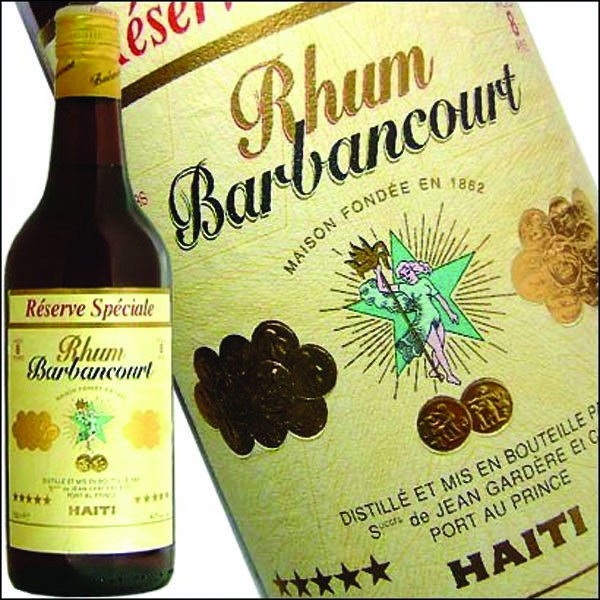Letters to Lovecraft is our newest genre-blending anthology of original fiction, and as a holiday treat to our readers we’ll be posting excerpts from each of the stories. As the death knell for 2014 tolls out across the world, we bring you a glimpse of Tim Lebbon’s “The Lonely Wood.” By placing a grieving atheist in a house of God, Lebbon poses a philosophical question that underpins both religion and cosmic horror: which is more terrifying, the idea that we’re alone in this universe, or that we’re not?
He opened his eyes. Above him was St Paul’s huge dome, the Whispering Gallery encircling it at a lower level. There were several people up there now leaning on the handrail, looking down, swallowing up the transcendent song rising to them. On the walls lower down were immense paintings or mosaics of the four disciples that had supposedly written the Gospels.
“Come on, then,” Guy muttered, surprising himself. He had no wish to disturb the music, but something was settling around him. At first it was a playful notion, an idea that if he was ever to receive the touch of Christ, or to find his heart opened to the God he had never believed in, now would be the time. He’d never thought himself an on-the-fence doubter, was comfortable in his convinced unbelief. Yet he’d often had that discussion with Marie — If God exists, why doesn’t he just tap me on the shoulder and show me the smallest sign?
“Come on, here I am,” he whispered. “Do your worst. Do your best. Just do anything.”
Proof denies Faith, was always her reply.
Why?
“I’m waiting.”
Nothing happened. Guy chuckled. Of course not. He stared up at the amazing ceilings above him, the incredible artwork, and marvelled at the dedication and commitment of those who had created it hundreds of years before. To build this place now would be almost impossible. The cost would be into the hundreds of millions, the skills all but vanished in a time of steel-and-glass altars to commerce and excess.
And suddenly, in that place of wonder and grandiosity, he felt a flush of disgust. How many lives had been lost building this place? He doubted they were even recorded. How much money spent while the rest of London had lived in conditions of poverty, filth, and plague? The true cost of places such as this was never known. The music and singing soared, and it felt like the only pure thing. He appreciated the beauty of the architecture, but he could no longer admire it.
Guy stood, chair legs sliding against the floor. One of the choir girls glanced at him — it must have been the sudden movement, she can’t have heard his chair move from that far away — and he tried to smile. But she had already turned back to her music sheets.
The conductor waved, body jerking like a marionette.
The organ groaned and moaned, exhalations of distress given wonder.
Guy turned his back on the choir and walked away. He headed for the front of the cathedral and the impossibly high doors which were only used when important people came. Not people like him. But somehow he drifted to the left, and then he found himself at the entrance to the staircase that wound its way up into St Paul’s massive dome, and the famous Whispering Gallery it contained…
For the rest, get Letters to Lovecraft from Stone Skin Press.
Tim Lebbon is a New York Times–bestselling horror and fantasy writer from South Wales. He’s had almost thirty novels published to date, as well as dozens of novellas and hundreds of short stories. His most recent releases include the apocalyptic Coldbrook, Into the Void: Dawn of the Jedi from Del Rey / Star Wars Books, The Cabin in the Woods novelization, the Toxic City trilogy from Pyr in the USA and the official Alien tie-in novel Out of the Shadows.
Future novels include The Silence (Titan UK/USA). He has won four British Fantasy Awards, a Bram Stoker Award and a Scribe Award, and has been a finalist for World Fantasy, International Horror Guild and Shirley Jackson Awards.
Twentieth Century Fox acquired film rights to The Secret Journeys of Jack London series (coauthored with Christopher Golden), and a TV series of his Toxic City trilogy is in development. His script Playtime (with Stephen Volk) is currently being developed in the UK.
Find out more about Tim at his website www.timlebbon.net
 is a writer of dark fantasy, horror and erotica. A 2006 graduate of Clarion, her fiction has appeared in ChiZine, Subterranean, Sybil’s Garage, Pseudopod, Apex Magazine, Postscripts, Nightmare Magazine and numerous anthologies. Her first collection, Engines of Desire: Tales of Love & Other Horrors, was published in 2011 by Lethe Press. Engines received a nomination for the Shirley Jackson Award for Best Collection, and “Omphalos” received a Best Novelette nomination. You can find her online at liviallewellyn.com.
is a writer of dark fantasy, horror and erotica. A 2006 graduate of Clarion, her fiction has appeared in ChiZine, Subterranean, Sybil’s Garage, Pseudopod, Apex Magazine, Postscripts, Nightmare Magazine and numerous anthologies. Her first collection, Engines of Desire: Tales of Love & Other Horrors, was published in 2011 by Lethe Press. Engines received a nomination for the Shirley Jackson Award for Best Collection, and “Omphalos” received a Best Novelette nomination. You can find her online at liviallewellyn.com. is the author of the novels The Little Sleep, No Sleep Till Wonderland, Swallowing a Donkey’s Eye, the cowritten YA novel Floating Boy and the Girl Who Couldn’t Fly (with Stephen Graham Jones) and the short story collection In the Mean Time. His essays and short fiction have appeared in the Los Angeles Times, FiveChapters.com and Best American Fantasy 3. He is the coeditor of four anthologies, including Creatures: Thirty Years of Monsters (with John Langan). Paul is the president of the board of directors for the Shirley Jackson Awards. He lives outside of Boston, Massachusetts, has a master’s degree in mathematics, has no uvula, loves his friends, and hates his many enemies.
is the author of the novels The Little Sleep, No Sleep Till Wonderland, Swallowing a Donkey’s Eye, the cowritten YA novel Floating Boy and the Girl Who Couldn’t Fly (with Stephen Graham Jones) and the short story collection In the Mean Time. His essays and short fiction have appeared in the Los Angeles Times, FiveChapters.com and Best American Fantasy 3. He is the coeditor of four anthologies, including Creatures: Thirty Years of Monsters (with John Langan). Paul is the president of the board of directors for the Shirley Jackson Awards. He lives outside of Boston, Massachusetts, has a master’s degree in mathematics, has no uvula, loves his friends, and hates his many enemies. writes scary stories about the scary world we live in. Two of her stories have been nominated for Shirley Jackson Awards, and one won the 2010 ChiZine Short Story Contest. It took her two tries to leave Nebraska, but she has been in Washington, D.C., for three years now. She works in research and tends her garden of student debt sowed by two political science degrees. For more, see nadiabulkin.wordpress.com.
writes scary stories about the scary world we live in. Two of her stories have been nominated for Shirley Jackson Awards, and one won the 2010 ChiZine Short Story Contest. It took her two tries to leave Nebraska, but she has been in Washington, D.C., for three years now. She works in research and tends her garden of student debt sowed by two political science degrees. For more, see nadiabulkin.wordpress.com. is the author of more than a dozen books, including, most recently, the novel Immobility and the short story collection Windeye. Three times he has been a finalist for a Shirley Jackson Award, and he is the recipient of an International 276 Horror Guild Award for his collection The Wavering Knife. His novel Last Days won the American Library Association’s award for best horror novel of 2009. He lives and works in Providence, Rhode Island, with his wife Kristen Tracy and their son Max.
is the author of more than a dozen books, including, most recently, the novel Immobility and the short story collection Windeye. Three times he has been a finalist for a Shirley Jackson Award, and he is the recipient of an International 276 Horror Guild Award for his collection The Wavering Knife. His novel Last Days won the American Library Association’s award for best horror novel of 2009. He lives and works in Providence, Rhode Island, with his wife Kristen Tracy and their son Max.

 I’ve been a fan of (in)famous NYC photographer Arthur “
I’ve been a fan of (in)famous NYC photographer Arthur “ Rhum is probably Haiti’s most popular export, other than Vodou, and the link between the two was not something invented to suit this story. Baron Samedi, the loa summoned by Mrs. Simons, is very partial to strong liquor, and so she keeps overproof rhum on hand for when she summons him (as well as a good cigar). The Baron drinks his rhum straight, and so should we, for despite its good name being dragged through the gutter by certain dubious pirate captains, quality rums are every bit as nuanced and sippable as fine Scotches. Well, okay, maybe you don’t have to knock it back neat like the Baron does: a little ice is acceptable, and a touch of lime if the spirits so move you.
Rhum is probably Haiti’s most popular export, other than Vodou, and the link between the two was not something invented to suit this story. Baron Samedi, the loa summoned by Mrs. Simons, is very partial to strong liquor, and so she keeps overproof rhum on hand for when she summons him (as well as a good cigar). The Baron drinks his rhum straight, and so should we, for despite its good name being dragged through the gutter by certain dubious pirate captains, quality rums are every bit as nuanced and sippable as fine Scotches. Well, okay, maybe you don’t have to knock it back neat like the Baron does: a little ice is acceptable, and a touch of lime if the spirits so move you. htly different range of ages than Rhum Barbancourt, but not being distilled purely from the sugar cane itself, Angostura has many rums but no rhum.
htly different range of ages than Rhum Barbancourt, but not being distilled purely from the sugar cane itself, Angostura has many rums but no rhum.
.jpg) Regardless of 32 or 40, there are a lot of malt liquors to choose from at your nearest convenience store. While Colt 45 is the most recognizable, it is also the most foul. Old English 800 was what I remember downing back-in-the day. Since then, I’ve become fond of King Cobra. Hailing from Busch, it is the most palatable of the malt liquors. One can imagine it has a cider-like taste, but the imagination can be a tricky thing. The bottle is easy to grip and sip from, and most importantly it has a 6% ABV rating. But remember, malt liquor is about simple needs, so any of it will do just about as fine as another.
Regardless of 32 or 40, there are a lot of malt liquors to choose from at your nearest convenience store. While Colt 45 is the most recognizable, it is also the most foul. Old English 800 was what I remember downing back-in-the day. Since then, I’ve become fond of King Cobra. Hailing from Busch, it is the most palatable of the malt liquors. One can imagine it has a cider-like taste, but the imagination can be a tricky thing. The bottle is easy to grip and sip from, and most importantly it has a 6% ABV rating. But remember, malt liquor is about simple needs, so any of it will do just about as fine as another.
Recent Comments